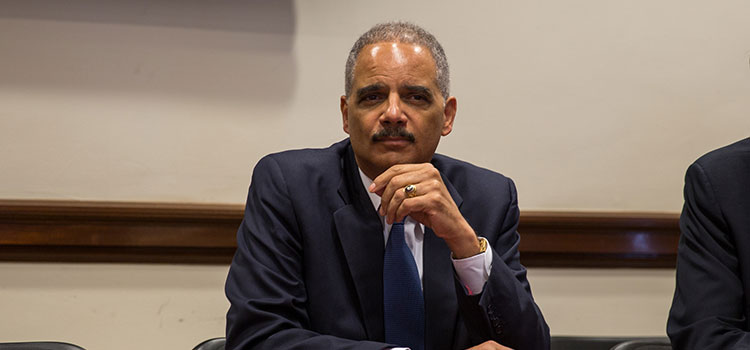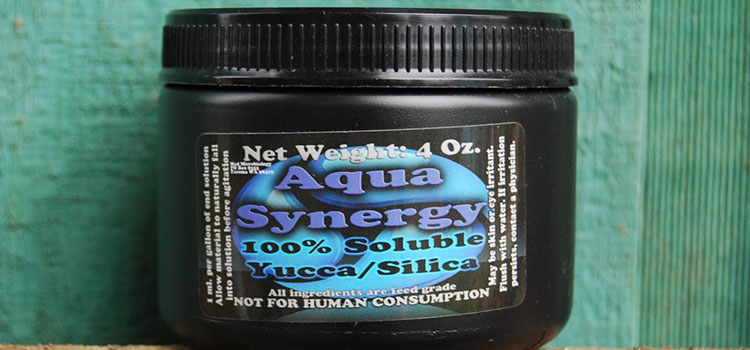For all the successful reforms and increasingly marijuana-friendly attitudes among politicians — not to mention a relentless, nation-wide cultural backlash against the failed policies of prohibition — most legal cannabis companies have remained stuck in a cash-focused industry, forced to tread a disastrously unfortunate line in regards to mainstream bank services.
In case you’ve missed it so far, this is a big deal: perhaps the biggest obstacle preventing cannabis from going irrevocably mainstream.
‘Dude, where’s my 401k?’
Since legalization first touched down in Washington and Colorado, there have been countless reports of cannabis companies waking up to realize their bank account had been shut down, or their credit cards canceled.
Mary’s Medicinals, however, has had a particularly brutal time in 2016. In addition to recently losing its Facebook community of more than 20,000 followers, the Colorado-based infused product manufacturer also lost its credit card processing, payroll services, and 401k — each offered through different banking institutions — within weeks of each other.
At this point, Mary’s has had its general banking services walked back on four different occasions, even though the company doesn’t have a retail storefront and operates entirely on the B2B back end of the industry.
But for Financial Director Robin Swinney, however, the liquidation of her employees’ 401k came as a surprise.
“The 401k didn’t even cross my mind as something that would be at risk. I just thought that the money we were putting in on our employees’ behalf [would be] safe,” she told Ganjapreneur. “But here we are.”
Swinney said she signed up for the 401k through Charles Schwab about three months ago. When the funds were liquidated, however, the company’s employees were slapped with federal penalties for allegedly accessing their 401k prior to retirement — not that they had any choice in the matter.
It’s an unfortunate side effect of working in legal cannabis, and one that Mary’s has decided to help alleviate by covering its employees’ liquidation fees. Mary’s will not, however, be offering another 401k setup to its employees until there have been some dramatic changes to the system.
“We value our employees. We want to be a company that gives incentives — but we can’t,” Swinney said. “We tried it, and we’re being penalized, so now we … cannot offer a 401k program, given the current landscape.”
Despite its 401k debacle, Mary’s Medicinals has one small advantage in regards to credit card processing: the company is able to sell CBD-rich edibles under its sister brand Mary’s Nutritionals. And, because these products’ THC content is lower than the federally legal threshold, they can be sold wholesale directly into the mainstream market.
However, for most businesses in the cannabis industry, it remains tough — and in some cases illegal — to secure even the most basic of banking services.
Checking accounts and credit card processing
“Access to commercial credit has been huge for the industry,” said David Rheins, founder and CEO of the Marijuana Business Association (MJBA). “And not just commercial credit, but really even getting a bank account: there are many banks that will just not give you [an account] if you are a licensed cannabis business. Many won’t give you an account if you have ‘cannabis’ or ‘marijuana’ … in the name.”
The result is a rapidly-growing industry that is completing the majority of its transactions — retail sales, wholesale sales, tax payments, and sometimes even employee wages — in a largely cash-based environment.
Occasionally, a dispensary or recreational retailer may actually have the option of purchasing their products with a credit or debit card, but Rheins warns business owners against this tactic: “If you use a Visa or MasterCard to process cannabis, you’re in trouble. That’s violating federal regulations. The credit card company and the major banks that back them will not allow [it].”
“There are some dispensaries that have [credit card processing]. What they’re doing is mis-coding those transactions, and ultimately that’s not legal,” Rheins said. “They can risk not only losing that credit card account, but … putting a black mark on their credit and forever be blacklisted.”
However, a cash-based billion-dollar industry is untenable at best, and some entrepreneurs have been developing strategies to help marijuana businesses and banks establish a working relationship.
Cashless transactions
In fact, several ancillary companies have begun to pop up that specifically target the industry’s cash problem. One California-based start-up claims to be the first payment system available in Washington that is designed to allow bankable marijuana commerce throughout the entire supply chain, from seed-to-sale.
PayQwick, according to the company’s co-founder and CEO Kenneth Berke, “is the first and only federally registered Money Services Business licensed by the Washington State Department of Financial Institutions for the recreational marijuana industry.”
After signing up for PayQwick, consumers receive a card that they can link to their personal bank account. They can transfer money onto their PayQwick card — which can hold up to $1000 at one time — and swipe that card as payment at any participating retail location.
For retailers, processors and producers, PayQwick aims to alleviate banks’ concerns about the legality of cannabis by taking over every aspect of ensuring compliance. Essentially, they promise to make sure a cannabis company is operating above-board before bringing them under the PayQwick umbrella. As a result, every company that successfully signs up with PayQwick gets access to a bank account.
“Not only do they guarantee you a bank account, but they guarantee you a bank account for $150 per month,” said Myles Harlow Kahn, attorney for the Foundry Law Group and advisory board member for PayQwick. Over time, Kahn has become all-too-familiar with the industry’s banking woes.
“As an attorney in this field with three dozen licensees as clients — producers, processors and retailers — my number one recommendation is use PayQwick because it makes your life easier and it’s the only legal solution out there,” he said.
As of this writing, PayQwick has 51 participating businesses and there are just over 100 others who are currently undergoing the company’s due-diligence compliance checks. Just over 1,000 consumers have signed up for the program.
What’s next?
Legal cannabis has become a mainstay in political discussions from both sides of the aisle — and we’re talking about it openly, not whispering about it in the corner.
The archetypal stoner has been replaced by the new cannabis consumer, and we’re not just some millennial version of the 1980s hippie or down-to-earth business jockeys who happen to toke up at the end of a long day — we’re everyone: your neighbors, your grandparents. The more spotlight it gets, the more mainstream cannabis becomes.
And with companies like Mary’s Medicinals — eager to begin a lasting financial relationship between themselves and their employees through 401k incentives that workers in most other industries can take for granted, but who have ultimately been slapped with financial setbacks at nearly every turn — the need for true federal reform is becoming painfully more obvious every day.
When asked about the frustrations of repeatedly having to start over on their financial situation, Swinney joked, “There’s a lot of cussing involved.” But it’s clear that sometimes perseverance and honesty is the only way forward in the industry. Today, Mary’s is secure in a full disclosure banking relationship, though it costs them “an insane amount of money.”
“We feel like we are past the point of getting our day-to-day bank accounts shut down,” she confirmed.
For PayQwick, they’ve decided to move forward despite the currently restrictive landscape. With real progress on the federal level continually seeming several years out, sometimes the better option is to make your own opportunities. And Kahn believes that even after the federal restrictions are lifted and the legal cannabis floodgates begin opening around the country, the PayQwick model will persevere because — even in a post-prohibition world — issues of compliance will continue to plague the industry for years to come.
“It’s so labor-intensive, it’s so specialized, that if they can be that buffer for the bank, and take care of that piece for them — even if the banks were willing to offer [cannabis] accounts, I think they would still rather do it through [PayQwick],” he said. We’ll have to wait and see.


























